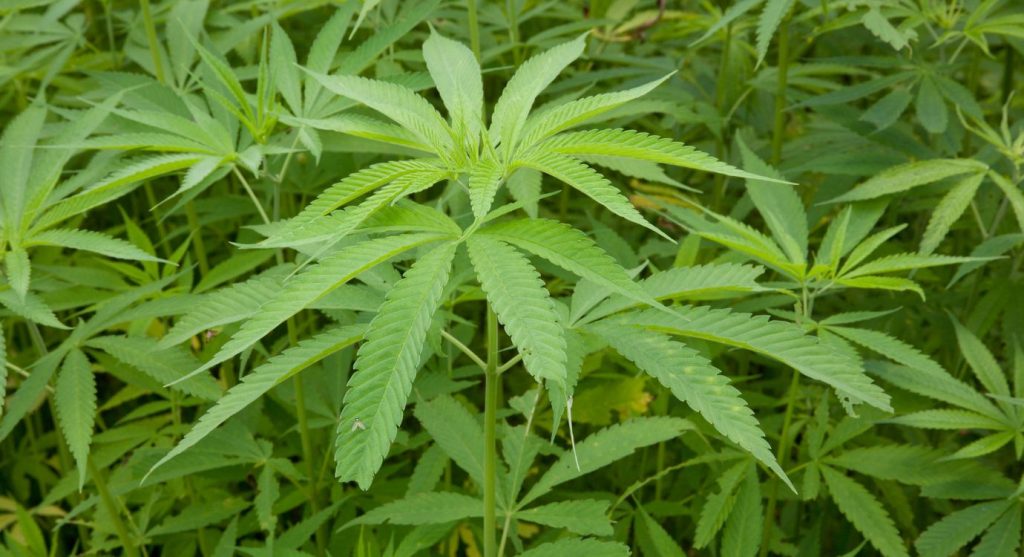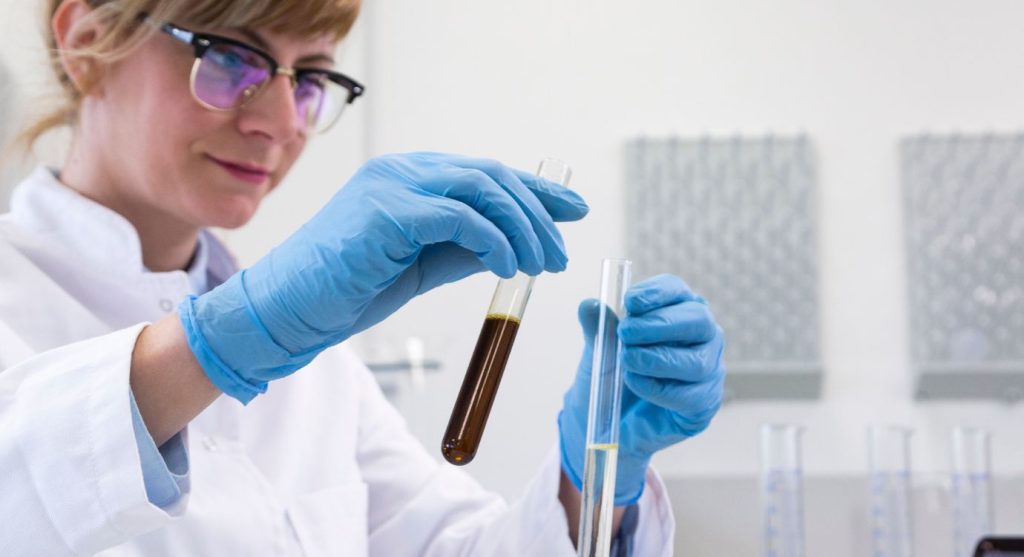Free delivery on all orders over £45
Free delivery on all orders over £45

Medically reviewed by
If you’ve been using CBD for a while, or you’re in the process of researching before you get on your CBD oil journey, you may have come across some lab reports with lots of different cannabinoids listed, including CBDA.
So what is CBDA? And what is the difference between CBD and CBDA? In the battle of CBDA vs CBD, is one cannabinoid better?
In this guide, we get into more detail about:
First, to understand what CBDA is, and the differences between CBDA vs CBD, it’s important to understand what CBD is.
CBD is a cannabinoid extracted from hemp.
It works by interacting with the endocannabinoid system which, like other processes in the body such as the immune system, endocrine system, and central nervous system, maintains homeostasis in the body.
Homeostasis is just a fancy word for the way the body continues to function efficiently through a number of internal processes.
A number of studies indicate promising effects of CBD for encouraging bodily wellness.
CBD is legal in the UK and can come in many forms, including oils, e-liquids, CBD capsules, edibles, hemp tea, and CBD balm.

CBDA, short for cannabidiolic acid, is a cannabinoid naturally found in raw or unheated cannabis and hemp plants.
It is a non-psychoactive, acidic compound that is the precursor to CBD.
When cannabis or hemp is harvested and exposed to heat, light or air, it goes through a process called decarboxylation.
During decarboxylation, CBDA loses its ‘acidic hydroxyl group’ – a group of atoms consisting of carbon, oxygen, and hydrogen. Removing this group turns CBDA into CBD.
Since this process takes a while, the finished CBD product might still contain some CBDA. So, if you’re using a broad or full-spectrum CBD oil product such as a tincture, you are likely getting some CBDA.
Until recently, scientists didn’t think CBDA had any effect on the endocannabinoid system because of the structure of the molecule. However, recent research has changed that idea.
While they might be closely related, there are some differences between the benefits of CBD vs CBDA. Here are some of the key benefits of each:
Read more: CBD benefits

While CBDA is one of the most common cannabinoids in the hemp plant, by the time it has been extracted and bottled, CBD is far more abundant.
Cannabidiolic acid can become CBD even when sat at room temperature for some time, meaning cannabidiol is far more stable. Therefore, when you buy CBD oil, the percentage of CBD is less likely to decrease over time than the percentage of CBDA.
Early research has found that CBDA could be more powerful at encouraging wellness than CBD is.
This is huge for the CBD industry and scientists alike, considering it was not long ago that scientists didn’t think CBDA had any effect on the body at all.
One reason is because the bioavailability of CBDA vs CBD is greater, meaning it could be metabolised faster and with less effort.
Read more: CBD bioavailability
CBDA and CBD have different effects on the endocannabinoid system, but we’re still learning exactly how this works.
So far, scientists have identified that CBDA may activate 5-HT1A serotonin receptors.
In contrast, CBD interacts with the ECS by inhibiting the release of FAAH, which is an enzyme that breaks down anandamide.
So while they might be structurally similar, the role they play in the body is very different and worth exploring.
A lot of CBD users use vape pens or e-cigarettes as an easy way to add CBD to your daily routine.
However, if you’re wanting the positive effects of CBDA, the process of heating the vape juice will turn CBDA into CBD.
The same goes for cooking with CBD oil; heating it makes the reaction occur and you therefore lose CBDA.
This may be fine if you’re only interested in the benefits of CBD oil alone, but if you’re looking for the potential benefits of CBDA then you should blend hemp leaves into a smoothie or take broad spectrum CBD oil sublingually.
Read more: Can you vape CBD oil?
CBDA content is more vulnerable to degradation due to incorrect storage than CBD.
CBDA may have greater bioavailability making it more beneficial.
CBDA may activate serotonin receptors while CBD prevents the breakdown of anandamide.
CBD can be heated making it suitable for cooking and vaping.
After learning about the differences between CBDA vs CBD, you might be wondering how you can consume CBDA.
In the UK, only hemp is legal, so the best way to experience the potential benefits of CBDA is by choosing an organic, lab-tested, broad-spectrum CBD oil.
By choosing a broad or full-spectrum CBD oil, you will likely get a small amount of CBDA in your dose. This is because, in a broad spectrum CBD oil, lots of other cannabinoids and terpenes are present – CBDA included.
However, make sure you check the lab test results of each brand to confirm you’re getting a good product which includes some CBDA.
If you live somewhere where cannabis is legal and you can blend it into a smoothie or juice, then you’re free to experience the effects of CBDA in abundance.
Like CBD, CBDA is non-psychoactive, so it will not alter your mental state. This means you can use it any time of day without worrying about negative side effects.
Early research shows that CBDA may be able to interact with enzymes that regulate pain, but it is not a recognised pain medication and will not treat or cure any specific condition.
Since CBDA is capable of interacting with 5-HT1A serotonin receptors, it may one day be investigated as a possible natural treatment for anxiety, but we aren’t there yet.
Understanding how cannabinoids work can help to improve your understanding of how to make the most of your CBD products. While structurally similar, CBD and CBDA are very different, with each offering unique benefits.
Research into the benefits and potential uses for CBDA might not be as extensive as CBD, but it still shows promise.
At the moment, CBDA is not widely available in high concentrations, but this could soon change if it is found to offer additional therapeutic benefits.
10% off on your first order
Complete this one-minute quiz and find the right products for you.
Sign up for the Evopure newsletter:
This product is not for use by or sale to persons under the age of 18. It should not be used if you are pregnant or nursing. Consult with a physician before use if you have a serious medical condition or use prescription medications. A Doctor’s advice should be sought before using this and any supplemental dietary product. This product is not intended to diagnose, treat, cure or prevent any disease.
© Evopure Ltd. All rights reserved Terms & Conditions Cookie Policy Sitemap